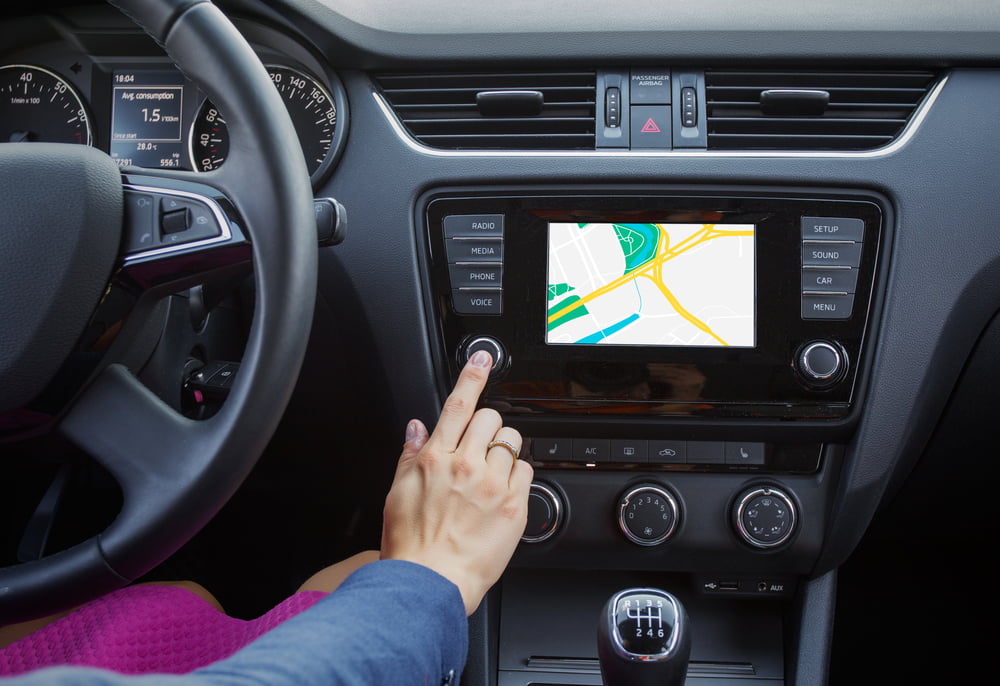Summer is upon us and the chance to enjoy a road trip with car technology glory is here. What are today’s consumers looking for when it comes to purchasing a new vehicle? Are car brands meeting their expectations?
It had been a while since I bought my last car – and, as someone who follows the auto industry closely, I was keenly aware of all the smart gadgets and services I could choose from. From self-driving capabilities to Wi-Fi to safety features, today’s cars are essentially smart homes on wheels; the options are extraordinary, and every choice comes with a price.
Tech upgrades become a priority
I had a number of luxury wagon models in mind – and when it came to car technology, I also had some clear “wants.” As mobile tech has grown, I have watched what were once gee-whiz gizmos and functions transform into mainstream “must haves.” So, apart from all-wheel drive, a sunroof, and curb appeal, I wanted my new wagon to have Bluetooth, standard connectivity features and Apple CarPlay. It is true—the other car in my household is just fine and would serve my transit needs; but I was looking for some upgrades to my connectivity suite, so I would feel safer on the road.
But when I decided on a vehicle and looked up the trim/package that included Apple CarPlay, I was aghast to find that it would cost me nearly $10,000 to get this simple feature. The manufacturer was holding CarPlay hostage within wheel upgrades and other frivolous nonsense – on the assumption that spoiled, tech-loving folks like me would bite the bullet.
My reaction was immediate and surprising, even to myself – I decided to find another “first choice” model. Forget about heated and cooled 10+way power-adjustable front seats or any semi-conscious investment I had in the iconic badge; getting Apple CarPlay into my vehicle at a reasonable price became my top priority.
Smart car technology is the new normal
Recent research for GfK’s Auto Tech study in the US shows that my decision was actually somewhat predictable. We found that 50% of auto intenders will switch brands or models if a vehicle does not have most-wanted technologies. Car purchases are no longer about the car brand that your mom or dad insisted on, but whether you can link your latest playlist to the car stereo.
Luxury intenders are most likely to choose smart tech over brand loyalty. Over one-third (35%) said they would definitely consider switching brands to get cutting-edge, in-car technology – compared to 23% of non-luxury intenders. Another 55% in the luxury crowd said they would probably think about switching – essentially the same as non-luxury (57%).
Luxury intenders are also more likely to say that specific technologies are “must haves” for them; for example, almost two-thirds feel this way about active safety technology, versus 46% of non-lux intenders. Not surprisingly, Luxury intenders overall hold significantly higher interest, demand and willingness to pay for, a range of technologies from autonomous driving to infotainment systems and continue to be a driving force in the adoption of new technologies.
In my strong but pragmatic desire for advanced car tech, I reflect the intersection of Gen X and Gen Y perspectives—drawn to tech’s perceived ability to improve the driving experience (Gen Y optimism), yet keenly aware that new technologies will be leveraged to command a premium (Gen X cynicism). In this case, the democratization of iOS coupled with Bluetooth might serve my purposes just as well, and I could save the scratch and enjoy a great family vacation or look for a vehicle that doesn’t extort me for this feature. A major car maker recently added Apple CarPlay and Android Auto functionality after years as a holdout, with some backwards compatibility to shore up recent models. And other brands have built the capacity for future flash updates into their vehicles to keep them relevant.
The bottom line
One thing the car industry has learned – the customer always wins. Overall consumer attitudes are changing especially when it comes to their relationships with technology. When auto buyers want something badly, they will not let a little thing like brand loyalty stand in their way. If one manufacturer does not build it, consumers will leave for one that will. And as smart technology becomes more mainstream in other areas of people’s lives, the pressure on auto makers to provide the same devices and access at reasonable prices will only grow.
Want more tech insights on the auto industry?

